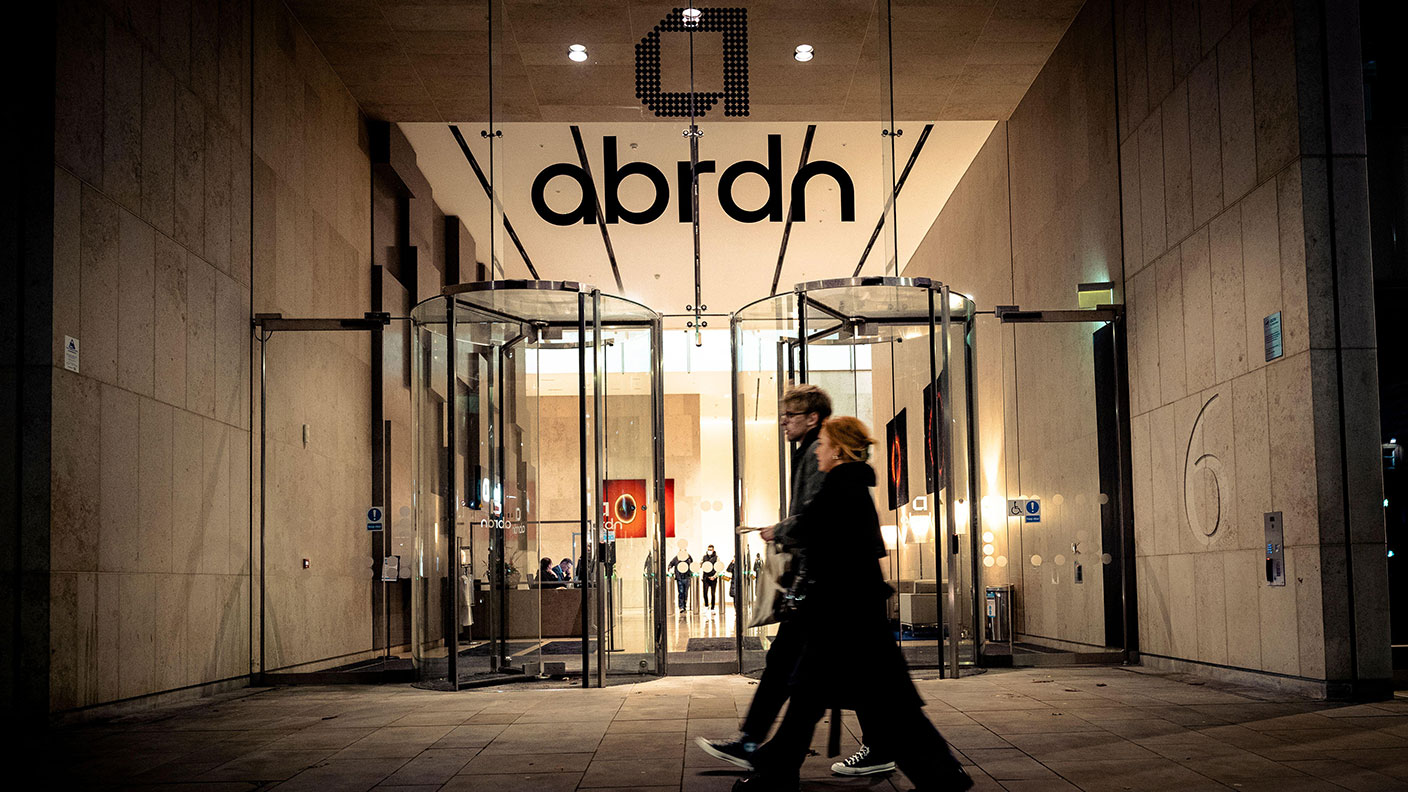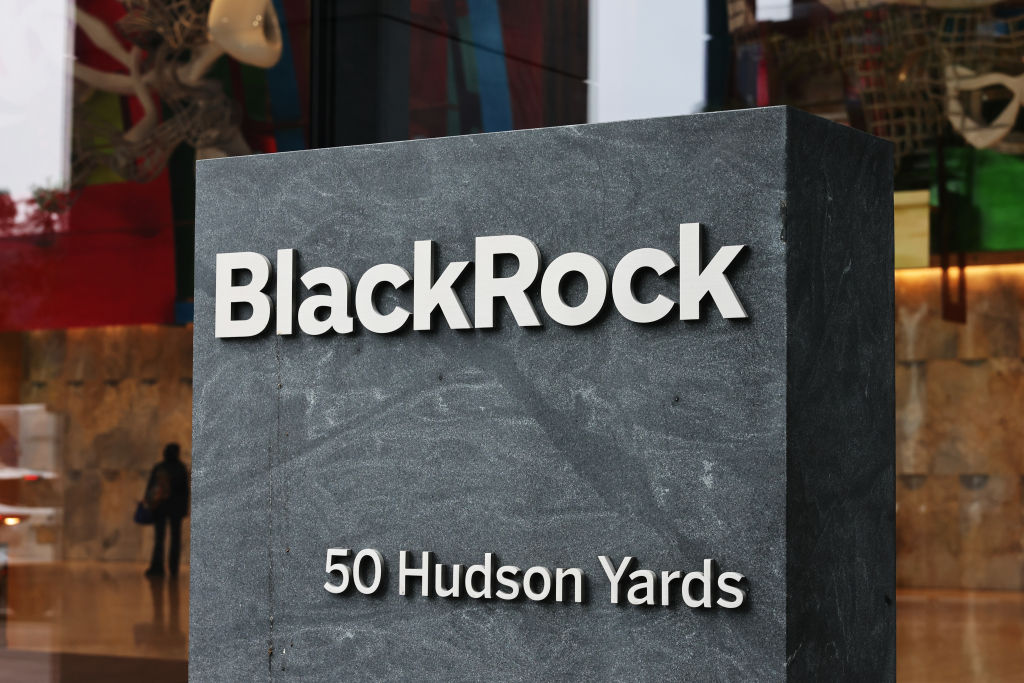Is abrdn’s eye-catching 9.2% dividend yield sustainable?
Shares in investment manager abrdn currently yield 9.2%. Generally speaking, says Rupert Hargreaves, it pays to be sceptical of very high dividend yields. So is that the case here, or is abrdn one for income investors to tuck away?


Get the latest financial news, insights and expert analysis from our award-winning MoneyWeek team, to help you understand what really matters when it comes to your finances.
You are now subscribed
Your newsletter sign-up was successful
Want to add more newsletters?

Twice daily
MoneyWeek
Get the latest financial news, insights and expert analysis from our award-winning MoneyWeek team, to help you understand what really matters when it comes to your finances.

Four times a week
Look After My Bills
Sign up to our free money-saving newsletter, filled with the latest news and expert advice to help you find the best tips and deals for managing your bills. Start saving today!
Abrdn plc (LSE: ABDN) currently offers one of the highest dividend yields in the FTSE 100. The company, formerly known as Standard Life Aberdeen plc, yields 8.4% based on Refinitiv analyst estimates.
It pays to be sceptical of high dividend yields and in this case, there’s clear evidence that this might not be sustainable. The company’s dividend cover – the ratio of earnings per share divided by the dividend payout – stands at 0.7 on a forward basis suggesting the firm is paying out more than it can afford – a clear red flag for income investors.
That said, dividend cover is a simplistic metric and it’s generally not wise to put too much weight on any one figure.
MoneyWeek
Subscribe to MoneyWeek today and get your first six magazine issues absolutely FREE

Sign up to Money Morning
Don't miss the latest investment and personal finances news, market analysis, plus money-saving tips with our free twice-daily newsletter
Don't miss the latest investment and personal finances news, market analysis, plus money-saving tips with our free twice-daily newsletter
So before we get into whether or not the company’s dividend is sustainable, let’s take a step back and look at where revenue comes from.
Abrdn has been struggling to grow in a competitive market
Abrdn’s business is, to quote the awful corporat-ese, “structured around three vectors”. These are “investment solutions”, “adviser solutions” and “personal wealth services”.
Since selling its life assurance, pensions and long-term savings arm in 2018, abrdn has been focusing on growing its wealth management businesses, which tend to have higher profit margins, fewer regulatory constraints and reduced capital requirements.
Trouble is, wealth management is a highly competitive industry with many giant asset managers around the world all fighting for market share. The London-listed company is up against the likes of American giant Blackrock (NYSE: BLK) and FTSE 100 peer Schroders (LSE: SDR). Both of these firm’s have a wider global reach and a bigger pool of client assets.
Despite management’s best attempts, abrdn is really struggling to grab market share. AUMA (assets under management and administration) fell to £508bn the first half of 2022, compared with £542bn last year - that’s even after including assets from the group’s recent acquisition of trading platform Interactive Investor (ii).
The drop was driven largely by the final stage of the withdrawal of Lloyds Bank’s (LSE: LLOY) vast Scottish Widows portfolio. The bank announced that it was pulling this mandate from abrdn in 2018, three years earlier than contracted, due to conflicts of interest. After a lengthy legal spat, abrdn was allowed to continue managing £35bn of the £109bn Scottish Widows portfolio with the rest being split between BlackRock and Schroders.
Even after stripping out this large outflow, AUMA still dropped overall.
The dividend may be more affordable than it looks at first glance
Earlier in this article I mentioned that abrdn’s earnings per share are not enough to cover its dividends, and that’s true – but not on management’s preferred measure of profit.
The firm’s annual report notes that in 2021 adjusted operating profit totalled £323m (fee income minus expenses) generating adjusted earnings per share of 13.7p against a dividend payout of 14.6p.
However, adjusted capital generation, which shows how adjusted profit contributes to regulatory capital, totalled £366m for the year. On this basis, the dividend payout is covered 1.2 times. Management sets the dividend based on this figure, not the adjusted operating profit number outlined above.
If this all seems a little complicated, you’re right – it is. There are lots of moving parts here and to add to the confusion, abrdn also reports its IFRS profit before tax measure, which includes items such as restructuring costs and profit on disposal of interests.
On this metric, the company earned £1.1bn in 2021 mainly thanks to investment gains on the group’s share of Indian life insurance group HDFC Asset Management and interest in Phoenix (received as part of the sale in 2018). However, this figure is highly volatile. For the first half of 2022, the group’s IFRS loss before tax amounted to £320m. This reflected losses on abrdn’s listed investments (undoing a chunk of the IFRS profits earned last year).
Market conditions are also having another impact on the group’s bottom line. As part of its shift towards wealth management, the company has become increasingly reliant on trading and management fee income generated on investors’ assets. As volatility has increased, investors have pulled back, leading to reduced fee income (and the value of their portfolios has declined hitting management fee income). As a result of this double headwind, group fee based revenue slumped 8% during the first half of 2022.
This soup of numbers might not mean much to all readers, but what it shows is that while abdrn might be making enough money to cover its dividend today, there’s no guarantee this will continue.
No immediate threat, but it’s hard to tell what happens in the long term
Overall, I don’t think abrdn’s dividend is really under threat today. The company is generating enough capital to cover the distribution (including asset sales and regulatory capital adjustments) and that’s what matters in the short term.
It’s the longer term I’m concerned about. Abrdn needs to attract new investors to grow AUMA and fees. It’s not clear it will be able to do that in the highly competitive wealth and fund management industry. It may even have to cut fees charged to clients to remain competitive.
Analysts appear to agree. Since the beginning of this year the average Refinitiv analyst estimate for 2022 earnings has been revised lower by 30%. With that being the case it’s not really surprising that the stock has fallen 29% over the past six months.
The big question is, if abrdn can’t grow earnings, how will it be able to grow its dividend in the long-run? That’s a question I can’t answer. As such, while I don’t think abrdn’s dividend is at risk of being cut today, I wouldn’t want to add the shares to my portfolio. I think there are other companies out there with better growth prospects and more attractive valuations.
After all, there’s more to investing than dividends. Capital growth is also a key component of the equation.
SEE ALSO:
How to find the best stocks with dividends
Five dividend stocks to beat inflation
The ten highest dividend yields in the FTSE 100
Get the latest financial news, insights and expert analysis from our award-winning MoneyWeek team, to help you understand what really matters when it comes to your finances.

Rupert is the former deputy digital editor of MoneyWeek. He's an active investor and has always been fascinated by the world of business and investing. His style has been heavily influenced by US investors Warren Buffett and Philip Carret. He is always looking for high-quality growth opportunities trading at a reasonable price, preferring cash generative businesses with strong balance sheets over blue-sky growth stocks.
Rupert has written for many UK and international publications including the Motley Fool, Gurufocus and ValueWalk, aimed at a range of readers; from the first timers to experienced high-net-worth individuals. Rupert has also founded and managed several businesses, including the New York-based hedge fund newsletter, Hidden Value Stocks. He has written over 20 ebooks and appeared as an expert commentator on the BBC World Service.
-
 Review: Eliamos Villas Hotel & Spa – revel in the quiet madness of Kefalonia
Review: Eliamos Villas Hotel & Spa – revel in the quiet madness of KefaloniaTravel Eliamos Villas Hotel & Spa on the Greek island of Kefalonia is a restful sanctuary for the mind, body and soul
-
 How a ‘great view’ from your home can boost its value by 35%
How a ‘great view’ from your home can boost its value by 35%A house that comes with a picturesque backdrop could add tens of thousands of pounds to its asking price – but how does each region compare?
-
 The UK cities where it’s cheaper to buy a house than rent
The UK cities where it’s cheaper to buy a house than rentFor people in some areas of the country, home ownership is a distant dream. But for others it can be surprisingly affordable.
-
 Is BlackRock World Mining gearing for a recovery?
Is BlackRock World Mining gearing for a recovery?Opinion After a frustrating year, BlackRock World Mining is positioned for growth and to capitalise on the sector's recovery
-
 Will the BlackRock World Mining Trust fund strike gold?
Will the BlackRock World Mining Trust fund strike gold?The BlackRock World Mining Trust looks like a compelling alternative to a pure play on gold explorers. Is it good enough?
-
 Crypto scams – what to look out for
Crypto scams – what to look out forFraudsters are using cryptocurrency scams to lure investors desperate for high returns - here is how to spot and avoid them
-
 Halifax: House price slump continues as prices slide for the sixth consecutive month
Halifax: House price slump continues as prices slide for the sixth consecutive monthUK house prices fell again in September as buyers returned, but the slowdown was not as fast as anticipated, latest Halifax data shows. Where are house prices falling the most?
-
 Rents hit a record high - but is the opportunity for buy-to-let investors still strong?
Rents hit a record high - but is the opportunity for buy-to-let investors still strong?UK rent prices have hit a record high with the average hitting over £1,200 a month says Rightmove. Are there still opportunities in buy-to-let?
-
 Pension savers turn to gold investments
Pension savers turn to gold investmentsInvestors are racing to buy gold to protect their pensions from a stock market correction and high inflation, experts say
-
 Where to find the best returns from student accommodation
Where to find the best returns from student accommodationStudent accommodation can be a lucrative investment if you know where to look.